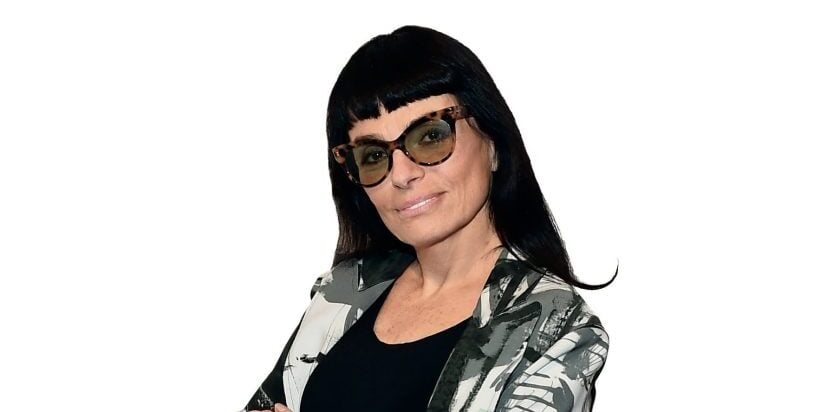Several companies are touting dietary supplements as the latest key to longevity. Sometimes marketed under the vague term “nutraceuticals,” these products—pills, powders and drinks, often containing nutrients such as vitamins, minerals, amino acids and herbs—cannot be categorized as food, additives or drugs, so the FDA does not regulate them. But they purport to have scientifically based benefits.
The marketing is working: These substances are gaining popularity, particularly in Silicon Valley, where living longer has become a kind of Holy Grail for problem-solving techies. One of my patients recently asked me about one of the most popular substances, Basis, which is sold by a startup called Elysium Health. Basis has attracted a lot of buzz recently with feature articles in Fast Company, Wired and New York that have focused on its attractive packaging and subscription model. (Basis is available for $50 a month or $480 a year.) My patient wondered whether he should take this pill in an effort to live a longer, healthier life—essentially the promise that Basis makes with its claim to “support well-being at the cellular level.”

A little context first: There are some truly beneficial substances in the dietary supplements marketplace. Vitamin D, coenzyme Q10, selenium and fish oil have all undergone extensive scientific research that shows their effectiveness at boosting the immune system and staving off heart disease. But there is also a lot of mistruth, obfuscation and outright deception in the supplements field because the products are not subject to the same level of FDA scrutiny as prescription medications; supplements do not require government approval to be sold. If you’re considering incorporating these substances into your regimen, you should be well armed with questions like what’s in them, whether they deliver what they promise and whether they have side effects. That’s why I was moved to inspect Basis more closely.
Any product touting medical benefits ought to have legitimate science behind it.
Led by a group of tech investment executives, Elysium, a 4-year-old company that began selling Basis in 2015, finished a round of series-B funding in December 2016. That detail matters because it shows that Elysium is adopting the path of a tech startup, not a pharmaceutical company. This business mentality is evidenced in the careful wording on its website. Here’s the promise of Elysium’s Basis: “Cells need the coenzyme NAD+ to function, and NAD+ declines as we age. Basis is clinically proven to increase NAD+ levels.” Read that carefully: The statement says nothing about longevity, just the level of coenzyme—a nutrient—in our bodies.
Elysium’s marketing materials make a big deal about the members of its advisory board, which includes 20 notable scientists and Nobel laureates. Its website prominently features their headshots and achievements, resembling a Who’s Who of the scientific community: Aaron Ciechanover, who won the Nobel Prize in chemistry, kicks off the list with his accomplishments in cancer biology; he’s followed by neuroscientist Eric Kandel and his work with molecular biology and memory. But if you don’t read carefully, you might overlook the fact that their achievements don’t amount to an endorsement of Basis. Board members’ “sole role is to advise Elysium on the development and testing of its compounds,” Thomas C. Südhof, a Stanford University neurophysiologist and Elysium board member, told the MIT Technology Review last year. What that actually means is hard to say.


Of course, aggressive marketing doesn’t mean that a product is fraudulent. So to assess whether Basis is worth considering, I asked three questions based in clinical science.
Is it harmless?
In other words, will my patient get hurt from using Basis? The answer is: probably not, but we don’t know for certain. Though cells with elevated NAD+ levels may act and look younger, that doesn’t mean they truly are younger—leaving the true effects of elevated NAD+ distressingly unknown.
Is it scientifically sensible?
Any product touting medical benefits ought to have legitimate science behind it, and claims made by its manufacturers and distributors must be logical. With Basis, the question is whether correlation equals causality. Elysium points to a study it funded to suggest that Basis does produce results, but that study—despite being published last October in the peer-reviewed Nature Partner Journal: Aging and Mechanisms of Disease—was conducted with very carefully chosen criteria. Did taking a daily boost of a NAD+ precursor increase NAD+ levels? Yes—but that’s like asking if daily iron supplements will increase blood iron levels. Of course they will. Elysium could have tested using different, more meaningful criteria, like examining if increased NAD+ levels reduced free-radical damage or inflammation. An Elysium spokesperson told me that demonstrating the safe increase of NAD+ levels in humans was an important first step. “We plan to look at several more endpoints in future studies, including inflammation,” he said.
Is Basis beneficial?
There is now no clear indication that Basis will have a positive effect on the life of my patient or any other—just the correlation that Elysium points out between aging and reduced NAD+. Yet I wonder how all the extra NAD+ that is normally not present in an older cell is processed. Could that have adverse effects that are not fully understood? Elysium’s study was only 60 days in duration—far too short a time frame to gauge any benefit in longevity or the potential negative effects on cellular health.
Ultimately, I think there is something potentially quite good in Basis, but I am hesitant because of my observation of other healthcare startups whose advisory boards, funding and valuations had little correlation to their products’ efficacy. While I am excited to see the results of further Basis studies, I told my patient to watch and wait for now. Until there’s more evidence, I advised him to stick to the mainstays of longevity: sleeping well, eating well, exercising moderately and taking scientifically valid supplements.
Dan Carlin, a physician, is CEO of WorldClinic, a New London, N.H.-based telemedicine practice.










